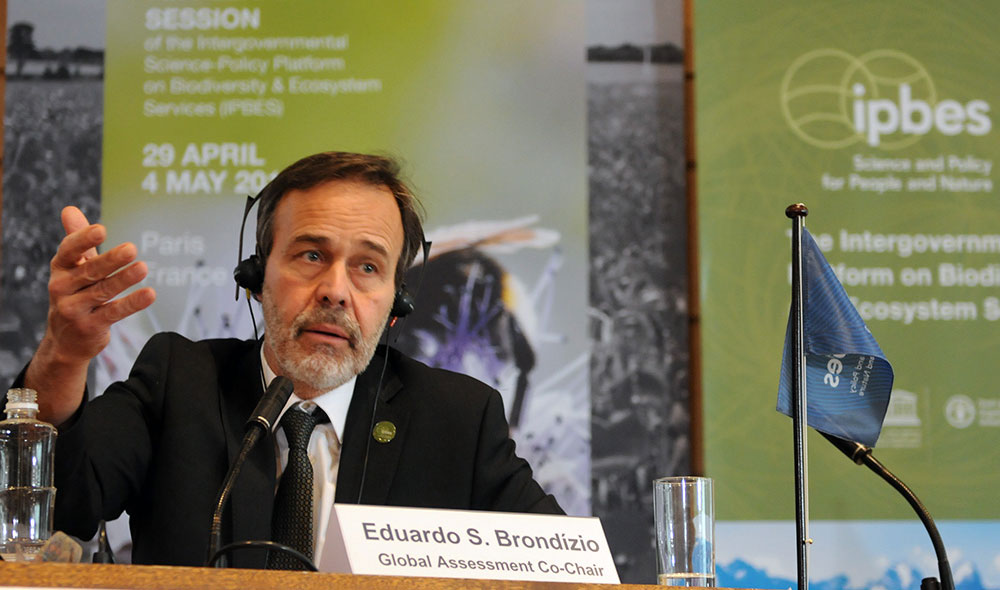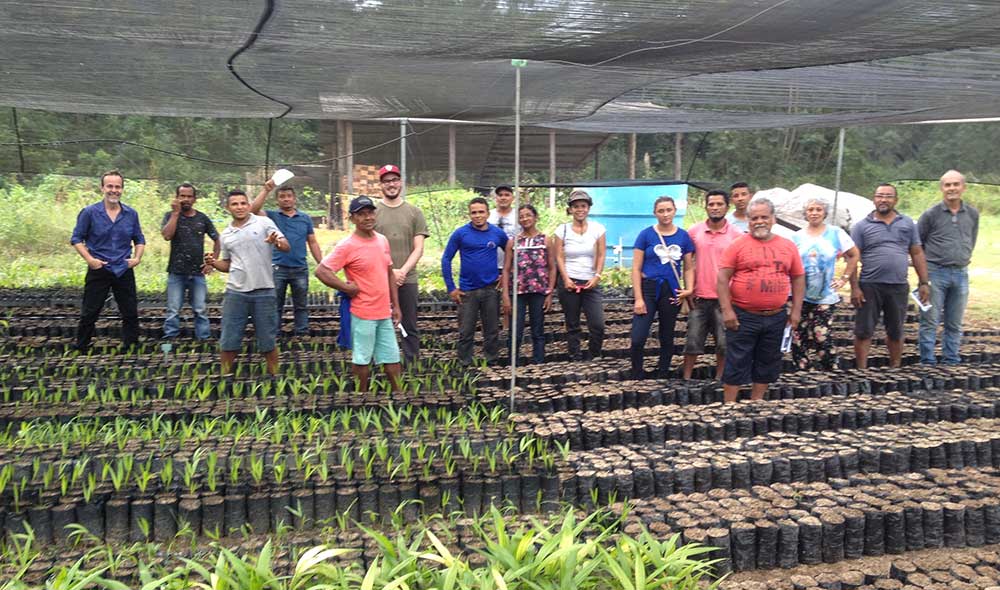Professor Eduardo Brondizio continues to serve as director of the Center for the Analysis of Social Ecological Landscapes (CASEL), a center under the auspices of the Anthropology and Geography departments that is dedicated to interdisciplinary social-environmental research involving faculty, students, and international visiting scholars from across disciplines. Though COVID-19 has put a stop to the biweekly seminars to talk about projects and proposals, Dr. Brondizio still feels that one of the best parts of his job is being part of an interdisciplinary community environment of exchange in learning. CASEL brings visiting scholars from universities from around the world, and is the only center on campus that allows students to have advanced training in geo-spatial analysis. To give a sense of the activities of the center: since 2014, they have hosted 24 international visiting scholars. Since 2018, CASEL associated students have produced ten doctoral dissertations and seven undergraduate theses.
Focus on Eduard Brondizio

For several years up to 2019, in parallel to his teaching at IU and Amazonian research program, Dr. Brondizio co-chaired (along with two others) the Global Assessment Report on Biodiversity and Ecosystem Services of the UN Intergovernmental Platform on Biodiversity and Ecosystem Services (IPBES), which was approved by 132 countries in 2019. This was an initiative with over 400 authors, from over 50 countries. The Global Assessment is the first report of its kind to systematically consider the contributions of Indigenous and local knowledge, and pay attention to issues affecting Indigenous Peoples and local communities globally. The initiative was an outcome for the long-standing efforts to bring Indigenous voices to these issues on the environment. The assessment implemented a strategy Dr. Brondizio developed in collaboration with colleagues for systematically including indigenous peoples and local knowledge and practices throughout the report’s authorial work. Partners included Indigenous organizations and representatives from around the world, both at the beginning to discuss strategy and get feedback on design and questions, and then afterwards to discuss results prior to assessment completion. The strategy also encompasses presenting and preparing data for indigenous organizations on the results of the global assessment, as well as providing subsidies for these organizations to continue advancing these issues. This assessment model provides a reference for further assessments to follow.
The assessment shows the global relevance of indigenous and local knowledge to environmental sustainability and in addressing local to global level changes. Globally, more than a quarter of all land is managed by indigenous populations, where some of the most conserved ecosystems and agrobiodiversity are present and where degradation has been slower compared to elsewhere. This is important for climate change mitigation and biodiversity conservation, as indigenous communities are at the forefront of pressures from commodity expansion and large-scale infrastructure development, and thus major players in addressing these issues. The assessment stress the importance of addressing the needs of indigenous peoples and local communities and recognizing the rights of indigenous peoples. Additionally -- from the G7, G20, the EU, and the World Economic Forum to raising popular interest and local action -- the Global Assessment has already generated greater global awareness and impact than any other environmental report ever launched. It has received more than 33,000 online news articles (excluding wide-ranging print and broadcast reach), in more than 150 countries and 50 languages. On social media, the two primary Report hashtags received more than 33 million impressions, details of which you can read here.

Since 2019, Dr. Brondizio and a network of international collaborators, students, and funding agencies (NSF in the United States) have been dedicated to the project “AGENTS: Amazonian Governance to Enable Transformation to Sustainability,” which engages and analyses place-based sustainability initiatives in the Amazon. While field activities have been significantly affected by the pandemic, the AGENTS project continues documenting and analyzing hundreds of promising initiatives in the region, promoting local initiatives and improving life standards and environmental sustainability, mainly with rural communities in the Amazon. The initiative looks at how people mobilize around issues that affect them by investigating place-based, local-level initiatives, and co-produces knowledge about their efforts through dialogue workshops and participatory mapping. These dialogues depend on fieldwork for conversations and the creation of sustainable partnerships. This year, during the pandemic, AGENTS has focused on analyzing already collected data, and continues to interact with local organizations virtually. The project has currently a database of over 200 local initiatives in over 900 places. The hope is to return to fieldwork next year.
Brondizio is also a member of IU’s Emerging Areas of Research Sustainable Food Systems Science project (SFSS), which includes a large network of faculty, students and research scientists at IU working on transitions to sustainable food systems in Indiana and around the world. The team includes Anthropology’s Dr. Jennifer Robinson, Dr. Sarah Osterhoudt, and several graduate students. You can read more information about this team here.
Finally, in 2020, Dr. Brondizio was elected to the American Academy of Arts and Sciences and as a foreign member of the French Academy of Agriculture. He received the IU Bicentennial Medal for promoting IU and contributing to knowledge production on a global scale.
 The College of Arts
The College of Arts